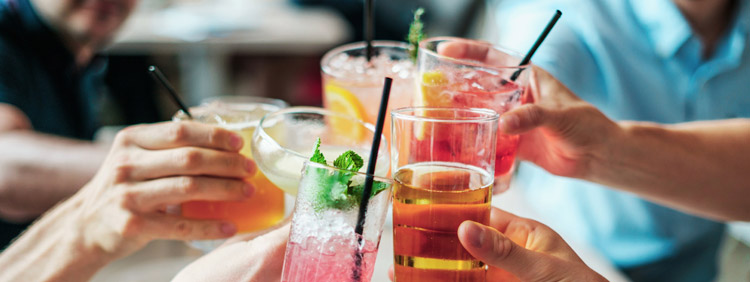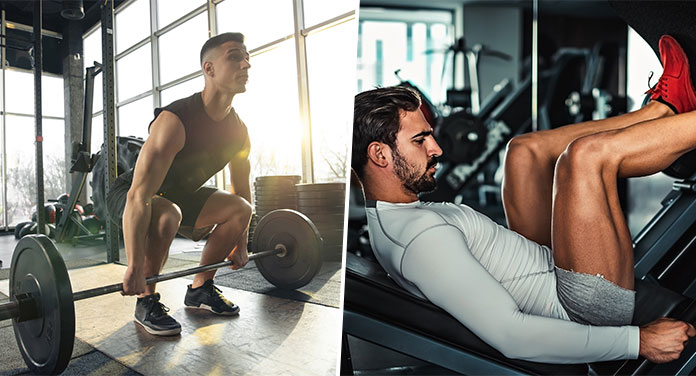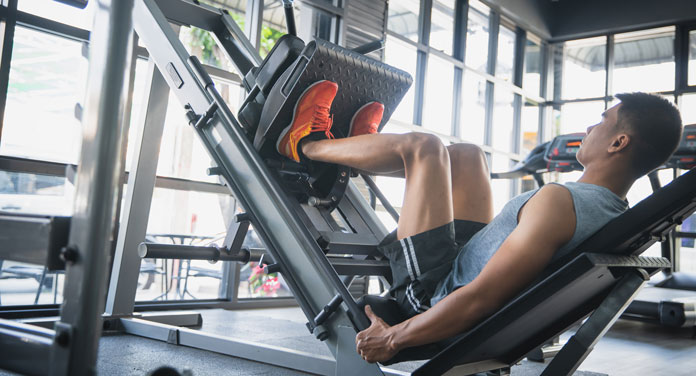Does alcohol inhibit muscle growth? A glass of wine after work, a cool beer at a barbecue party, or a sweet cocktail at the weekend – while many bodybuilders have given up alcohol altogether, many hobby athletes still treat themselves to a drink after work or at the weekend. But how fatal is that for the set training goals?
In this article, we will clarify whether alcohol fits into your training plan or if it will ruin all your successes and answer the most important questions about alcohol and sport.
What Happens When You Drink Alcohol?
Alcohol is a macronutrient in its own right. What might sound good at first isn’t because ethanol isn’t an essential nutrient that you need to put in your body. Alcohol is absorbed into the bloodstream from the mouth, stomach, and small intestine, but has to be partially broken down again by the liver. Alcohol also removes water from your body, which can lead to dehydration.
This makes it more difficult for your organism to break down the pollutants again and your body is not supplied with sufficient nutrients. All metabolic processes run slower and less efficiently because water is the basis for almost all chemical reactions in the body. Dilation of the blood vessels causes your body to cool down and has to produce more energy to maintain your normal temperature.
In addition, you release more stress hormones if you looked too deeply into the glass the night before. This release of cortisol inhibits the function of your immune system and you not only become more susceptible to infections but also irritable and bad-tempered – you may know this.
Does Alcohol Make You Fat?
Pure ethanol contains about 7 kilocalories per gram. It doesn’t sound like much at first, but after all, you don’t drink pure ethanol. So the calories vary from drink to drink but keep in mind that alcohol always contains “empty calories” that are in no way involved in your recovery or important growth processes. They do not provide you with any important nutrients or trace elements – quite the opposite.
The fact is: alcohol is a source of calories, with creamy cocktails or sugary alcopops in particular, but also the popular beer has a lot to offer. It’s important to keep in mind, however, that it’s not alcohol or beer itself that’s to blame for a “beer belly,” it’s the calorie count, which can quickly skyrocket from high-calorie alcoholic beverages.
If you’re in the process of losing weight, you want to keep the calories in your drinks as low as possible. But you should rather avoid it completely because alcohol also inhibits fat burning. Your body is now so busy breaking down alcohol that it can use less energy to break down body fat. And we don’t even have to talk about the ravenous hunger attacks that often end at night at the kebab stand.
Does Alcohol Inhibit Muscle Growth?
Unfortunately, there are quite a few factors that indicate that alcohol is not exactly conducive to muscle growth. On the one hand, it inhibits the release of growth hormones and lowers your testosterone level and this is significantly involved in building processes – such as muscle building. Alcohol also interferes with protein biosynthesis, which also hinders muscle growth.
In addition, alcohol in the blood impairs sleep and thus regeneration, which is crucial for fat loss and muscle building. Conclusion: Yes, alcohol inhibits muscle growth. But if someone tells you that your party at the weekend ruins the entire training success of your whole week, then that is probably an exaggeration
Does Exercise Help With Hangovers?
The next morning after the party you have a guilty conscience and you actually manage to drag yourself from bed to the gym? Our tip: leave it as it is. You feel tired, sluggish, and listless and your body now reacts much more slowly to stimuli. Your coordination will suffer as a result, and thanks to your rashness, the risk of sports accidents can increase.
But that’s not all: due to dehydration, your body doesn’t get enough minerals and you hardly have any strength anyway. Your muscles lose their ability to contract, which can lead to cramps, muscle inflammation, or more serious injuries. It’s better to get a good night’s sleep and drink plenty of water so that you can start again the next day.
Conclusion
Isometric training is suitable for everyone and can be wonderfully integrated into your training plan and everyday life. You don’t need any previous knowledge or equipment. With the help of this form of training, you can work on your weaknesses or increase your overall strength values.
There are no disadvantages to name, as long as you pay attention to the careful execution of the exercises. Isometric training > is often completely wrongly underestimated. However, it is definitely worth trying out. You will be amazed by the results.





